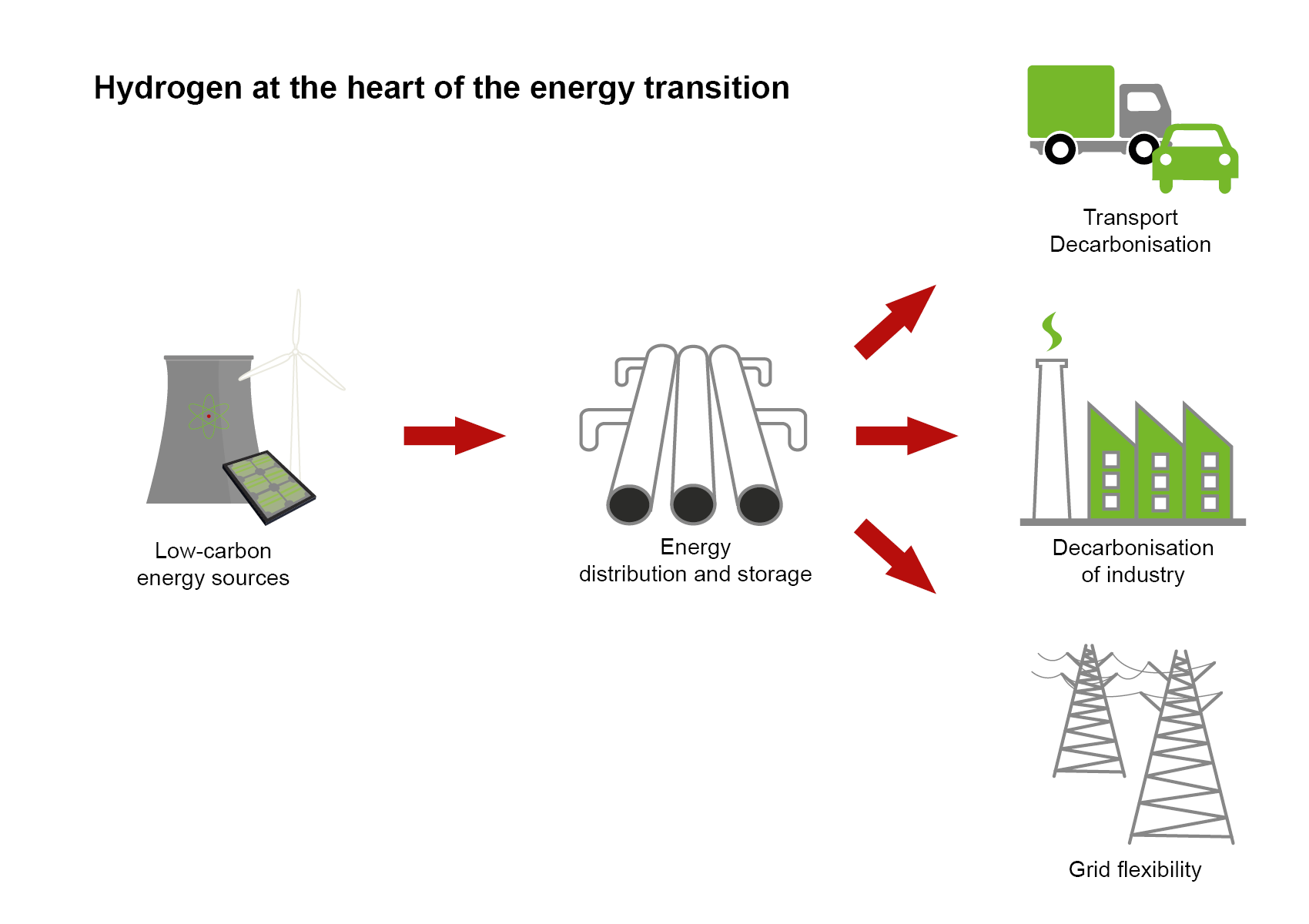Hydrogen as an Energy Vector
Hydrogen, an energy vector that will bring flexibility to the energy transition.

With physical and chemical properties that enable it to produce and store large amounts of energy, green hydrogen has the capacity to support electricity grids. Hydrogen is becoming the key energy vector for long-range clean mobility and is supporting the emergence of low-carbon-emission industrial processes.
Liten has been conducting research on hydrogen as an energy vector for more than 20 years and is leading the field of hydrogen-energy in Europe, developing key components for hydrogen production, storage, and conversion. These technologies are now mature enough to respond to the demands of today's market and environmental imperatives.
The fuel cell, a high-performance energy source for transportation
Liten made a choice to focus on low-temperature PEMFC (proton exchange membrane fuel cell) technology, which is both compact and high-yield. When combined with pressurized (700 bars) storage that meets international standards, hydrogen can compete with thermal-energy-powered vehicles in terms of both range and charging times.
Liten's PEMFC research targets overall system performance through optimized electrochemical reactions in the membrane-electrode assembly (MES) and increased fuel cell energy density (currently at more than 4 kW/L). Technologies developed as a result of this research have been transferred to PSA, Symbio, and Faurecia. Liten is also laying the groundwork for future generations of PEMFCs made using printed components.
In parallel to these component-development projects, Liten integration specialists are working on modeling and monitoring software for actual vehicle fleets with the goal of improving
vehicle and fleet operating strategies.
High-temperature electrolysis
Liten opted to focus primarily on
high-temperature water-vapor electrolysis, which offers the advantage of converting electricity into hydrogen with higher yields than other solutions. With development activities covering stacks, systems, and their components, Liten owns the world's second-largest portfolio of patents on this technology. The institute has obtained results at the international state of the art, with current densities of 2A/cm2. The technical and economic assessments Liten has completed with industrial R&D partners indicate that, with improvements to current high-temperature electrolysis processes, hydrogen could be produced for less than €2 per kilogram by 2030.
The technology is also
reversible, which means that it can operate in fuel-cell mode, generating electricity from renewable gas without reforming and with higher electricity yields than other technologies. Liten has developed a unique reversible technology that has been integrated into a ~10 kW demonstrator currently being tested on-site by a partner from the energy industry.
The institute's roadmap was developed to meet the needs of a range of markets. Demonstrator projects for these key applications are in progress. Liten researchers are already at work on a 300 kW unit that will be very close to a future cost-competitive system. A green-hydrogen industry is emerging in France, and Liten is leading the way. This fledgling industry will benefit from Liten's pilot stack production line.
Download our flyers: